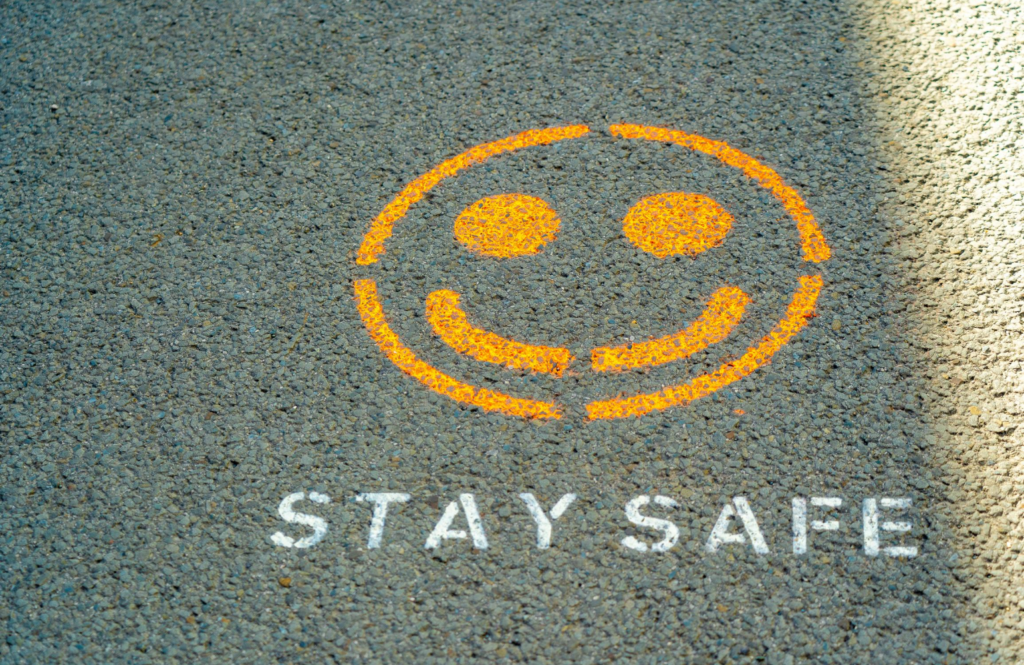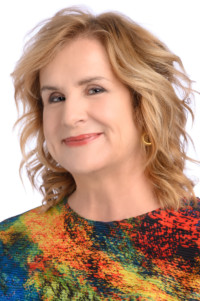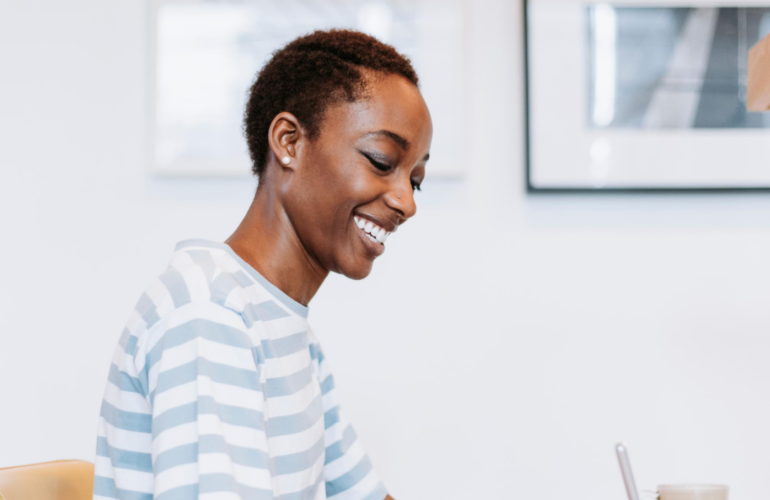As part of our “You Said It” Op-Ed series, we invite contributors to submit their opinion pieces. The views reflected in these pieces may not be our own. Have a submission? Contact us here.
“Happiness depends upon ourselves.”
I painted it high on the wall of the breakfast room in green acrylic paint—a cheery color- and surrounded it with swags of ivy to underscore the point.
It’s an Aristotle missive 2,300 years old and I was hoping it would serve as a reminder – or perhaps a mission statement – to my sons then 7, 5 and 2, to at least try to be happy. As if I could point to the quote during the near-constant tussles and childish compliance refusals to put on shoes or stop screaming.
Twenty-four years ago I needed the slingshot happiness reminder, freshly divorced, working and raising my sons alone in a house I still live in; the quote is still there. Today I am wondering if the concept still works.
At this tumultuous time in history with a surging pandemic of more than 16.5 million cases claiming thousands of loved ones daily, grave economic insecurity and global unrest over centuries of racial injustice no longer denied, the personal pursuit of happiness feels both superfluous and urgent. And the paths to it present as stymied and conflicting.
Is it possible to be happy right now? New surveys reveal the answer is both yes and no, and for various reasons, with results that differ for women.

Recent research from The University of Chicago shows that due to COVID-19 and other imminent cultural factors, Americans are the unhappiest they have been in 50 years.
“In 2020, the number of people who say they are very happy hit a historical low of 14 percent, a 17 percentage-point drop since 2018. The percentage of people who described themselves as not too happy also spiked to an all-time high since the question was first asked in 1972,” the report states.
I was a sophomore in high school in 1972, and — irrespective of the fear of wearing the wrong bellbottoms or not knowing who would ask me to Homecoming — I was indeed quite happy, oblivious to my white privilege, insulated and protected from larger worries.
But today for millions who are suffering, insulation from unhappiness is not possible; isolation, economic insecurity and possible contamination rightfully breed anxiety – and worse. A simple “go on, get happy” directive is fallow.
At this time, happiness does indeed depend on so many factors other than ourselves — financial climate, health, gender and racial bias, family, cultural chaos, political unrest, safety from crime and policing, as well as the airborne virus that is surging in the United States at a rate 15 times higher than anywhere else in the world.
The first phase of the COVID-19 Tracking Survey from University of Chicago and National Science Foundation shows 18 percent of Americans report “in the past seven days they have often or always felt anxious, depressed, or irritable, compared to 13 percent in 2018. Forty-five percent of Americans have also felt at least moderately fatigued in the past week.”
Another newly released comprehensive study, this from the University of Cambridge in the United Kingdom, shows that women are affected more deeply by COVID-19 and the ensuing lockdown — and in both predictable and surprising ways.
![]()
The Bennett Institute for Public Policy researchers found, “The mental health of the elderly, professionals, and women living alone seems to have deteriorated during lockdown.” This is due to some women bearing the burdens of childcare and homeschooling.
Yet, the lockdown — particularly for women living together — showed “affective life satisfaction recovered immediately from the start of the lockdown, and by the second month was no longer significantly below the societal baseline.” The research shows, “While levels of boredom, frustration, and loneliness continued worsening after lockdowns came into effect, sadness, stress, and fear declined and happiness, optimism, and contentment increased.”
Perhaps this is the Dora Milaje Effect?
Whether or not you live on an island of warrior women as in “Black Panther,” during COVID-19, the pursuit of happiness and the dissipation of unhappiness is a universal challenge many are tackling.
ABC News journalist Dan Harris, co-founder of the Ten Percent Happier podcast, offers a free Coronavirus Sanity Guide, and recently kicked off a 21-day challenge through August 16 “to help you build resilience so that you are less buffeted by circumstances you can’t control — and are therefore calmer, happier, and better prepared to help yourself and others.”
Same intent, same timing, different station: Author Gretchen Rubin hosts the podcast, Happier with Gretchen Rubin, with her sister, Elizabeth Craft. Rubin is a weekly contributor on happiness on “CBS This Morning” and creator of the app, Better.
“Part of a happy life is to identify your values,” says Rubin, author of The Four Tendencies, The Happiness Project and Outer Order Inner Calm.
View this post on Instagram
New studies commend just that approach, as Washington University in St.Louis faculty researchers report their survey shows those with a higher purpose claim lower stress levels and increased happiness, even now during COVID-19.
“As human beings, we are wired for purpose — to know why, to seek meaning in the things we do. When we have clarity on what our purpose is, we are happier and more fulfilled,” Stuart Bunderson, director of the Bauer Leadership Center and the George & Carol Bauer Professor of Organizational Ethics & Governance, told Phys.Org.
The Aristotle approach of self-dependent happiness is favored in new findings from researchers at University of Zurich and Radboud University publishing recently in the Personality and Social Psychology Bulletin. Their findings show that while self-control and long term goal-setting can make a person happy, hedonism contributes to happiness as well.
While I often cringe at the admonition to just find your bliss, and have never subscribed to the frequent declaration, “I just want to be happy,” my goal is somewhere between the drive to make yourself happy and an altruistic search for purpose, a greater good – a healthy combination of the two.
In my house, decades ago on another wall in the breakfast room I painted, “Only a life lived for others is a life worthwhile.” The words of scientist icon Albert Einstein serve as a companion to Aristotle’s direct address.
Perhaps the point I was making – as permanently as I could on a wall – is that both approaches can gracefully collide into happiness. And at this time, most everyone can at least try to find a slice of happiness.
More from Better:
- Bringing the Fair Home: 13 State Fair Recipes You Can Re-Create in Your Own Kitchen
- Room to Roam: A Young Couple Designs the House of their Dreams on a Spectacular 10-Acre Lot in Indiana
- Hunger Has Become A Devastating Side Effect of the Pandemic – But You Can Help Right Now
 Michele Weldon is an author, journalist, emerita faculty at Northwestern University, and senior leader with The OpEd Project. Her latest book, Act Like You’re Having A Good Time, is out this fall.
Michele Weldon is an author, journalist, emerita faculty at Northwestern University, and senior leader with The OpEd Project. Her latest book, Act Like You’re Having A Good Time, is out this fall.

